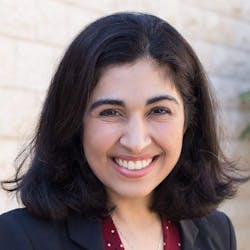Predictors of religious literacy
- Details
- Resources
People often know surprisingly little about their own religions, let alone the religious beliefs of others. This phenomenon has been termed “religious illiteracy”, and can lead to prejudice. In this research, I examined knowledge of basic facts about world religions among American adults, using a novel 42-item measure. Results showed that a greater interest in complex thinking and an approach toward religion for intrinsic benefit tended to predict higher religious literacy. Specific analyses about responses to the subset of questions about the Baha'i Faith will be shared in the presentation.
Deepening questions
- What do you think prevents people from seeking out information about other religions?
- How is religion typically perceived in your community - as a personal topic that should not be discussed in public, as a foundational source of values and guidance, as something passed on from parents like ethnicity, or something else?
- What might encourage people to reconsider the way in which they define religion?
- What efforts are you aware of in your community that offer people opportunities to learn about other religions?
Negin Toosi
Dr. Toosi is an experimental social psychologist with a special focus on diversity and intergroup relations. Her research deals primarily with social identities such as race, gender, and religion, as well as the intersections between them. She is an assistant professor of psychology at California State University - East Bay.

46th Annual Conference
The views expressed in this recording are those of the presenter and do not necessarily represent the views of the Association for Bahá’í Studies, nor the authoritative explications of Bahá’í writings.